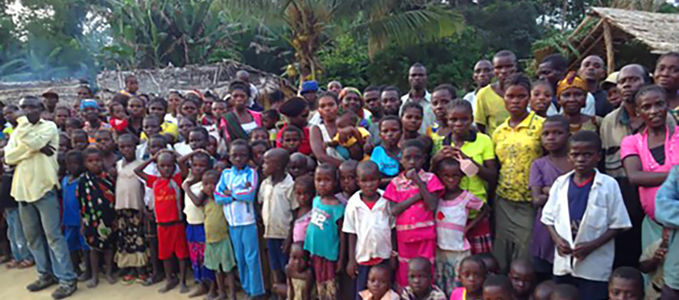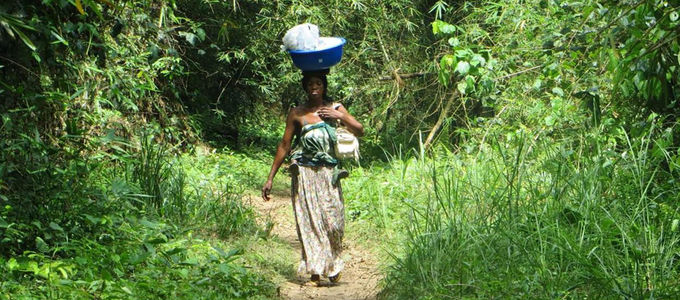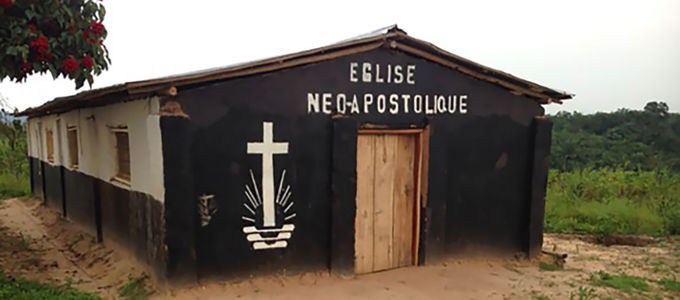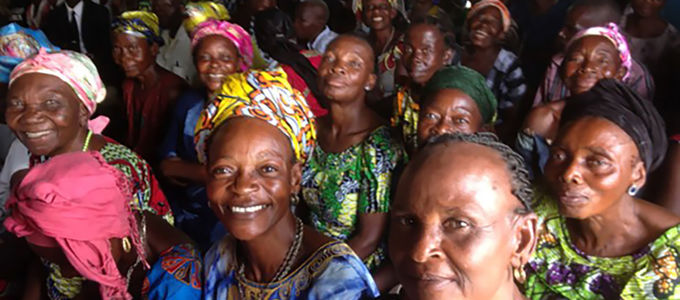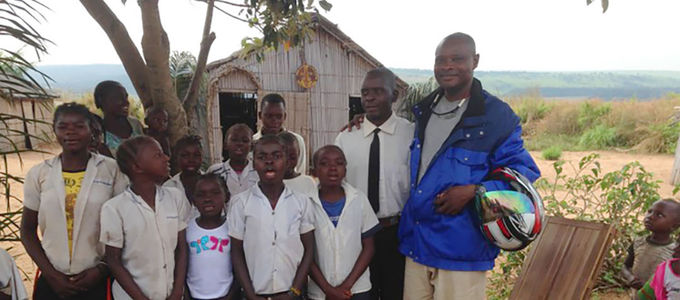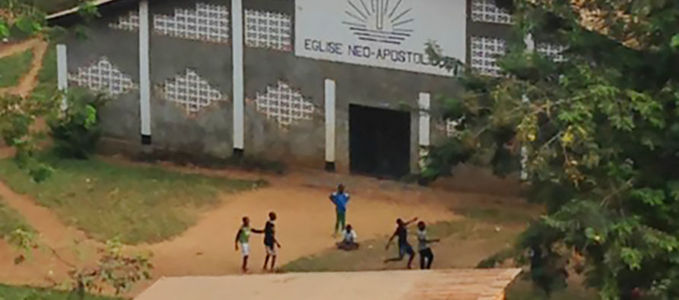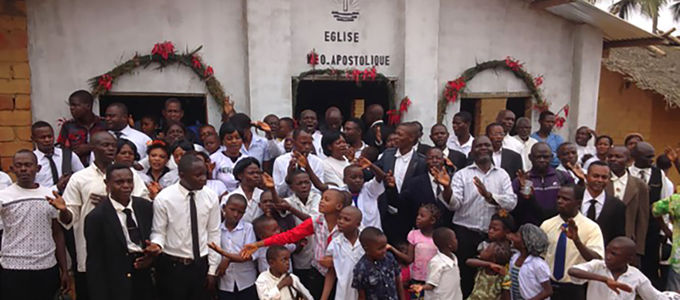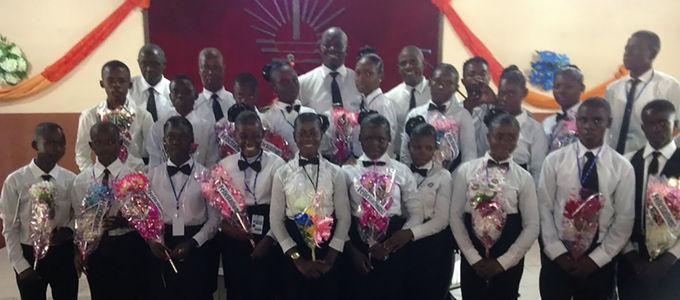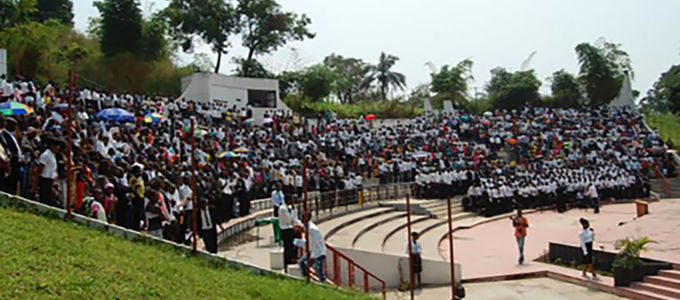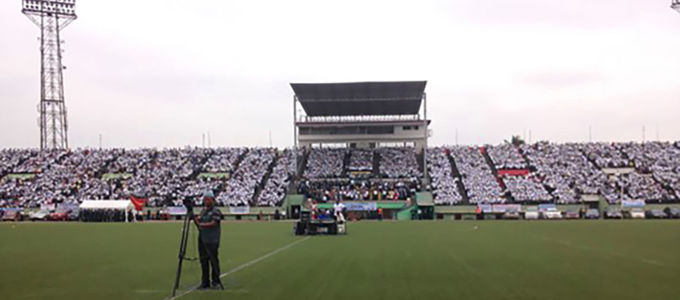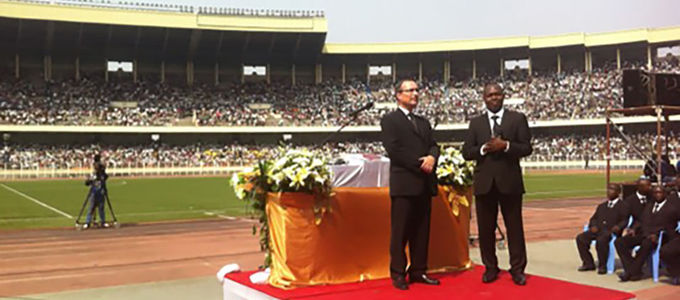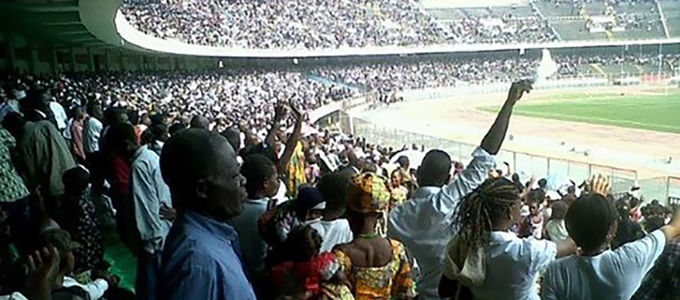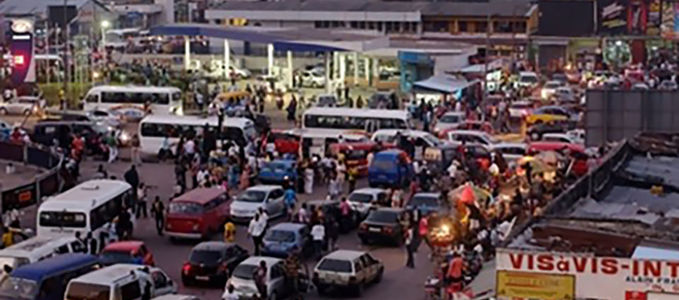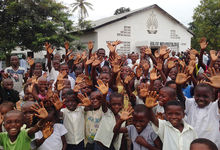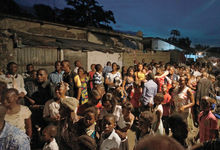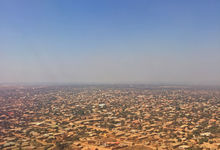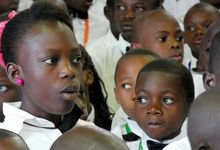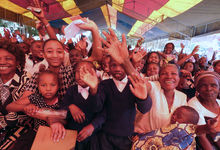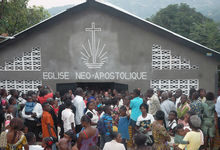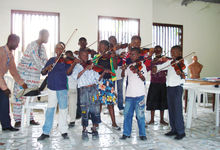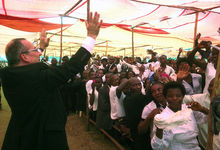A Church in a state of flux (Part 2)
From the village into the city—and then? The rural exodus is real challenge for the New Apostolic Church—especially in the country with the largest membership. Join us for part two on congregational life in the Democratic Republic of the Congo.
It would take District Apostle Michael Deppner more than 16 years to visit every congregation in Kinshasa to conduct a service. In fact, every second week he makes a spontaneous visit to a congregation there. He drives through the city until he comes across someone in a black suit. “I ask him where he is going and then we drive to the congregation together.”
There are 1,700 congregations in Kinshasa with a total of about 350,000 members. More than a quarter of all New Apostolic members live in the Democratic Republic of the Congo (DRC). The membership of the two District Churches in the DRC is about 2.5 million. On Pentecost in Washington, District Apostle Deppner gave a presentation on church life in his district at an exhibition hosted by the New Apostolic Church USA.
Contacts with other denominations
Few jobs, few educational opportunities … these are the conditions in the rural villages. Even church life is very dependent on people’s personal input. But this is precisely where the problem is: it is the most educated and motivated people who leave the villages to go to the cities for training opportunities and jobs.
First, people head to small towns, where there are schools and markets. Here the development of the congregations is very good. Sunday School, confirmation classes, and youth activities are offered. There are choirs and even instrumental ensembles. Here and there, there are even satellite dishes that can be rented for transmission services.
At this level the co-operation between the various Christian denominations is very good: representatives from other denominations attend special services in our Church. And it is not uncommon for New Apostolic ministers who are on pastoral trips to be offered a room in a guest house run by the Catholics, Protestants, or the Jehovah’s Witnesses.
Somewhere between freedom and being lost
People throng to the cities. And this holds many dangers, District Apostle Deppner has observed. In the beginning, people who leave their village—where there is an organised family and social life and where everyone is always under observation—enjoy the anonymity which the city with its thousands of people offers, but then they often feel isolated.
Some lose themselves in all that the city has to offer: sports, politics, and school promise many attractions. And there is a wide range of different religious denominations. The transition from an organised family and social life to free diversity destabilises young people who do not have a strong network of friends or family, or who are not firmly rooted in the congregation.
A completely different world
The capital Kinshasa is a special case. About 11 million people live here. It is the largest French-speaking urban agglomeration in the world—recently overtaking Paris.
Here are some key figures pertaining to the New Apostolic Church in the megacity: 350,000 New Apostolic Christians, 1,700 congregations divided into ten Apostle areas and 212 elder districts. Sunday School is offered for up to three age groups, confirmation is a two-year programme, and there are offers for the youth and the elderly.
The District Church even has a building programme. In view of the sheer number of congregations, the Church has to limit itself to constructing central churches—with a capacity of 400 to 700, in some cases with seating for up to a thousand. To date, 125 district churches have been built. Music is also officially promoted—the Church has established its own music school.
The congregation: a community with a common destiny
However, even in Kinshasa the congregations need people who take the initiative, and not only when it comes to the maintenance of the churches. This applies above all in everyday life. Because in areas where there is a lack of public infrastructure, the religious community steps in.
Illness, birth, death, education—the congregation deals with any issues that members face together, says Michael Deppner. This is not only done in the form of prayer, but there is also concrete financial help. The members find a solution for their problems together, the District Apostle reports. The people are interested in the fate of their neighbour and show solicitude. Even in this big city the congregation is a village.
Article info
Author:
Date:
Keywords:
Andreas Rother
09.08.2018
Democratic Republic of the Congo,
Structure,
Denominations,
Social commitment,
Congregational life


